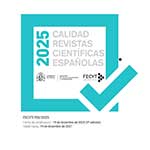La creación de trabajos académicos universitarios por medio de ChatGPT observando la regla de los tres pasos de la propiedad intelec
Resumen
La cuarta revolución industrial trajo varios cambios en la vida de las personas, sobre todo con relación a la evolución de las tecnologías de información y comunicación (TIC's), generando así, la sociedad móvil, que se caracteriza por la portabilidad de la información de las personas a través de dispositivos electrónicos. Por tal motivo, la educación también evolucionó en la forma de impartición de clases y en las herramientas que se utilizan para la realización de trabajos académicos, siendo una de estas herramientas el ChatGPT que funciona por medio de la inteligencia artifical, a través del chatbot, se hacen preguntas para genberar diferentes trabajos académicos, a primera vista, se podría decir que esta actividad no es compatible con la propiedad intelectual. Sin embargo, el Convenio de Berna para la Protección de las Obras Literarias y Artísticas de 1886, demuestra que esto no es así, en dicho convenio se establecen límites a los derechos patrimoniales de los creadores de obras literarias, a estos límites se les denomina la regla de los 3 pasos, en donde se menciona que, en casos especiales, se limitan los derechos patrimoniales. Y un caso especial es la educación.
Descarga artículo
Licencia
La revista Derecom. Derecho de la Comunicación, para fomentar el intercambio global del conocimiento, facilita el acceso sin restricciones a sus contenidos desde el momento de su publicación en la presente edición electrónica, y por eso es una revista de acceso abierto. Los originales publicados en esta revista son propiedad de la Universidad Complutense de Madrid y es obligatorio citar su procedencia en cualquier reproducción total o parcial. Todos los contenidos se distribuyen bajo una licencia de uso y distribución Creative Commons Reconocimiento 4.0 (CC BY 4.0). Esta circunstancia ha de hacerse constar expresamente de esta forma cuando sea necesario. Puede consultar la versión informativa y el texto legal de la licencia.







